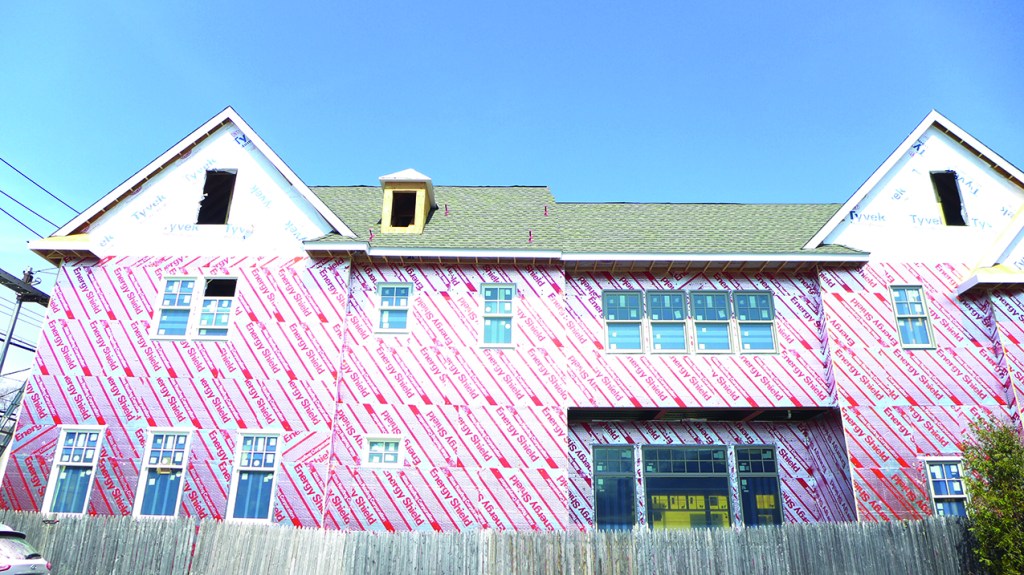Ghosts of the Past: What Happened to Long Island's Duck Farms?
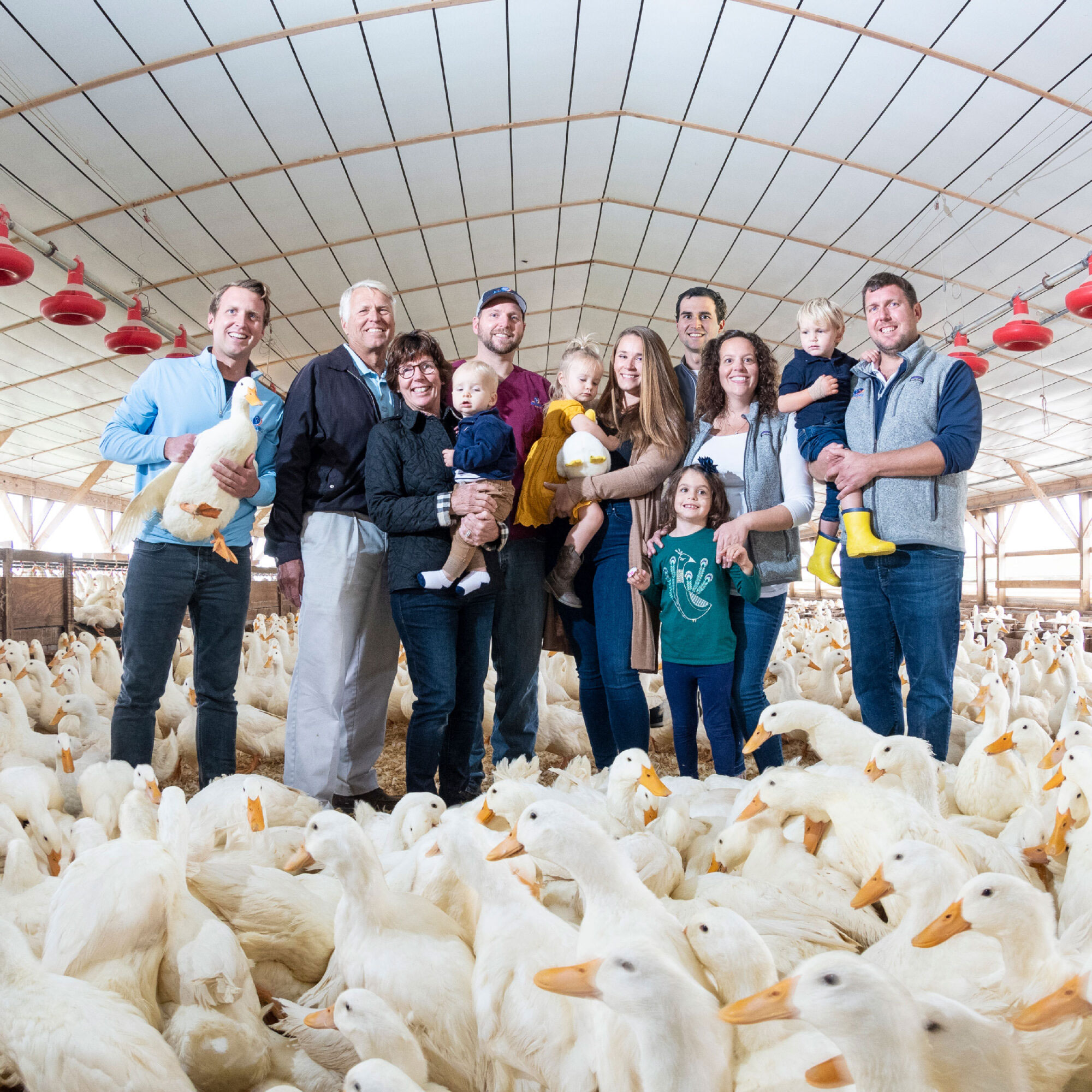
Oceans rise, empires fall, and eras end – and Long Island duck farming was no exception to this.
Duck farming once defined Long Island agriculture, with up to 99 farms once operating on Long Island, most of them on what’s considered to be the East End. The cultural impact and legacy of this heritage remains clear: Long Island’s professional minor league baseball team is named the Ducks, playing out of Central Islip. They were predated by a minor league hockey team of the same name. “The Big Duck,” which now sits in Flanders, is a duck-shaped building operating as a gift shop for tourists, but it was once a giant advertisement for Long Island’s booming Pekin duck industry. The Big Duck is on the National Register of Historic Places.
Local geography made it perfect for duck farming. Tidal creeks, streams, and rivers were hospitable for the ducks. And, of course, proximity to the culinary capitol of the world, New York City, increased the market demand.
Legend has it that all Pekin ducks in America are descended from nine ducks that were brought over from the Chinese Imperial City of Pekin, the former English translation of Beijing. American Ed McGrath was impressed with their size, apparently thinking they were geese. Pekin duck production exploded in America shortly thereafter, as Pekin ducks were bigger, meatier, and grew faster than the Western ducks farmers had been cultivating. In its heyday, Long Island alone accounted for nearly 50 percent of the nation’s duck meat production. There was even a Long Island Duck Farmer Cooperative Inc. formed by 44 farmers in 1960. “Long Island Duckling” was once abundant in menus across the island.
But eventually, state and county environmental regulations, real estate pressure, taxes, and more forced many of the duck farms to close down. One remains, and some were able to continue production in other states – but most of them are gone.
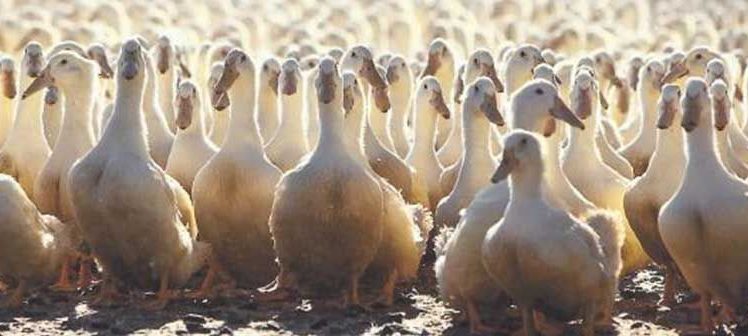
Crescent Duck Farm
When Long Islanders are asked, “What reminds you of home?”, things like the parkways, Jones Beach, and “bacon, egg, and cheese with salt, pepper, and ketchup,” probably come to mind quicker than “duck farming.”
However, when Aquebogue’s Crescent Duck Farm, the last of its kind on Long Island, was hit with a bird flu outbreak in January which threatened to close it down permanently, that history light suddenly switched on for islanders. Fundraisers were held, messages of support were sent to owner Doug Corwin, and Crescent Duck Farm is now back in operation.
“I wouldn’t survive if my genetics weren’t so different that I didn’t have a really strong niche of the upper end restaurant trade,” Corwin said. “If I didn’t have that niche, I wouldn’t be able to make a comeback. I’ve got to be able to sell the chefs that use multiple ducks a night that recognize the neat qualities of the birds that we have compared to what [the other farmers] have. Those guys are competing against each other. And some of the Canadians try to have a very cost efficient duck. I’m not trying to make a cost efficient duck. I’m trying to make a really meaty, succulent duck. And our genetics changed so much over the last 30 years that we really have most of that market in the Northeast and the others really can’t compete with it.”
Corwin credits his father, the late Lloyd Corwin Jr., with saving Crescent Duck Farm in the wake of environmental regulations. The waste produced by ducks, which contains more nitrogen and a more pungent smell than other animal manures, as well as leftover feed, was severely polluting the rivers and bays in the 20th century, prompting then-Suffolk County Executive H. Lee Dennison to implement the Environmental Bill of Rights in Suffolk in 1970. Dennison, who was Suffolk’s first County Executive, is remembered as an enemy of duck farming, continually stressing that the environmental impacts outweighed the economic benefits.
These waste cleaning requirements proved too costly for many duck farmers, but Lloyd Corwin Jr.’s operation was able to meet these laws effectively by shifting from traditional free range farming to indoor farming. Crescent Duck Farm also has an onsite wastewater treatment plant, which cuts another expense. Crescent Duck Farm can process up to 150,000 gallons of wastewater daily. But even if you don’t match government standards the minute the ink is dry on a new law, honesty goes a long way, according to Corwin.
“I find that if you’re transparent, if you’re honest with the government, and try to work hard and do the right thing, the government tries to work with you,” Corwin said. “And I think that’s the reason why the community loves us. The fact they don’t want to lose something that’s iconic has given us such support.”
And then, of course, there is passion. Corwin is aware his farm sits on a valuable piece of North Fork real estate, but as far as he is concerned, the land only has one purpose.
“It just became so much easier for these farmers to go out of business because their real estate was pretty high valued,” Corwin said. “And I guess we’re just dumb enough that we decided to just keep throwing money at what we’re doing, because we like doing this.”
Many other duck farmers folded to a combination of both regulatory and development pressure. Some rode off into the sunset with a modest bag of cash for their trouble and their land, others left with little more than a pat on the back.
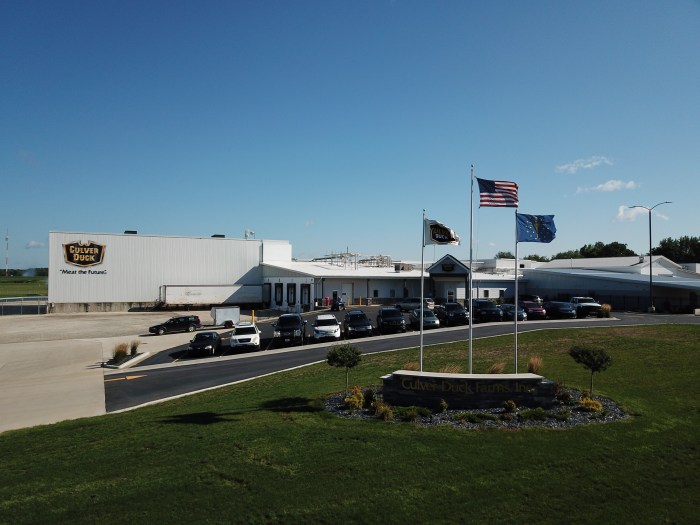
The Descendants
A few Long Island duck farms survived by shedding the “Long Island” part of the title.
In 1960, Herbert Reeve Culver II, fourth generation farmer and owner of the Culver Duck Farm in the Westhampton area, saw the writing on the wall.
The Culver Duck Farm was already a rebrand of C&R Duck Farm, which had been failing when purchased by the Culvers in 1940. The Suffolk County Water Authority was formed in 1951, and environmental pressure on duck farms began to grow.
Though upstream of many regulations that caused most of the duck farms to fold, the Culver family saw opportunities shrinking on Long Island and moved the farm to Middlebury, Indiana – where, to this day, it continues to hatch, raise, and sell ducks with Long Island roots.
According to Drew Frey, director of live production at Culver, Herbert Culver had been in a partnership and decided it was time to sell the Long Island portion of the farm.
“Long Island went from a farming community to a more high-end residential location,” Frey said. “Through increasing land prices and changes in how ducks were raised, it was apparent that the industry had to move or close. Ducks at one point were raised outdoors and Long Island was a great place to start farms. However, as environmental awareness increased, it became cost prohibitive to raise ducks outdoors. And why raise ducks when land was so valuable?”
While grateful for their time on Long Island, the Midwest is simply more hospitable for duck farming now, the Culvers explained.
“Indiana was more centrally located to ship all over the country, close to Chicago and had a large corn supply,” Frey added.
Culver Duck Farm was named in a 1990 Hampton Chronicle News article, when duck farmers including Corwin lobbied for the phrase “Long Island Duckling” to be banned for usage by out-of-state farmers. While their ducks are descended from Long Island ducks, they have since dropped the branding.
“At that point, it was felt that the claim was no longer as important to our customers, so it was removed,” Frey said. “There is still some ‘Long Island’ strain at Culver Duck.”
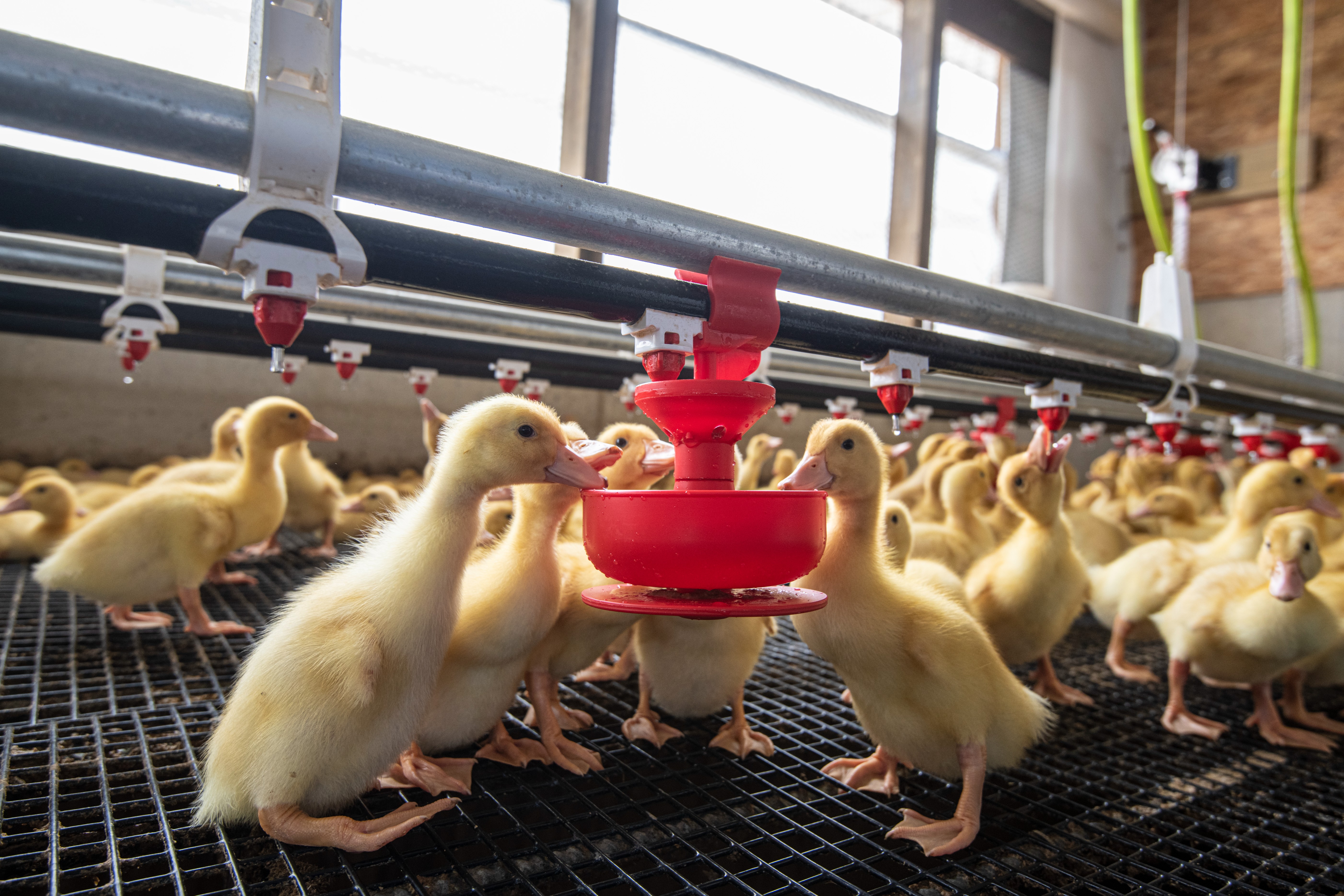
A similar story exists for the Jurgielewicz Duck Farm in Hamburg, Pennsylvania, another descendant of Long Island duck farming. The original Jurgielewicz Duck Farm was located in Center Moriches, but in 1983, Joe Jurgielewicz Sr. sold his share of the farm to his brother. With his son, Joe Jr., Jurgielewicz Sr. opened the Hamburg farm, and the two separate Jurgielewicz farms found themselves in competition with each other.
“My dad convinced my grandfather to start the duck farm back up,” Jim Jurgielewicz, Joe Jr.’s son, said. “My grandfather was content with the money from the sale. My grandmother had a greenhouse that I believe is still on Barnes Road, and that’s what they were going to do. That’s what she liked to do. My dad, once he got out of that school, said, ‘Hey, Dad, like, let’s figure this out. That’s what we know how to do best. And let’s start our own duck farm, and make sure that the Jurgielewicz name thrives in the duck industry.”
The Hamburg farm has made a small return to Long Island in recent years, supplying duck meat for the “Duck Yeah!” food truck in Southold and other smaller events.
The original Jurgielewicz farm in Center Moriches, which had been operating since the 1930s, continued under the ownership of the other branch of the family, but closed in 2011 amid environmental concerns and bankruptcy.
And then there were two.
Chester Massey & Sons in Eastport closed in 2015 for financial and regulatory reasons – rising taxes and limits placed on free range duck farming – leaving Crescent to stand alone as the keeper of the tradition.
“It makes me cry,” the late Chester Massey, owner of the farm who died in 2019, told CBS New York at the time of the closing. “I did it for 70 years. My kids grew up here. I don’t know anything else.”
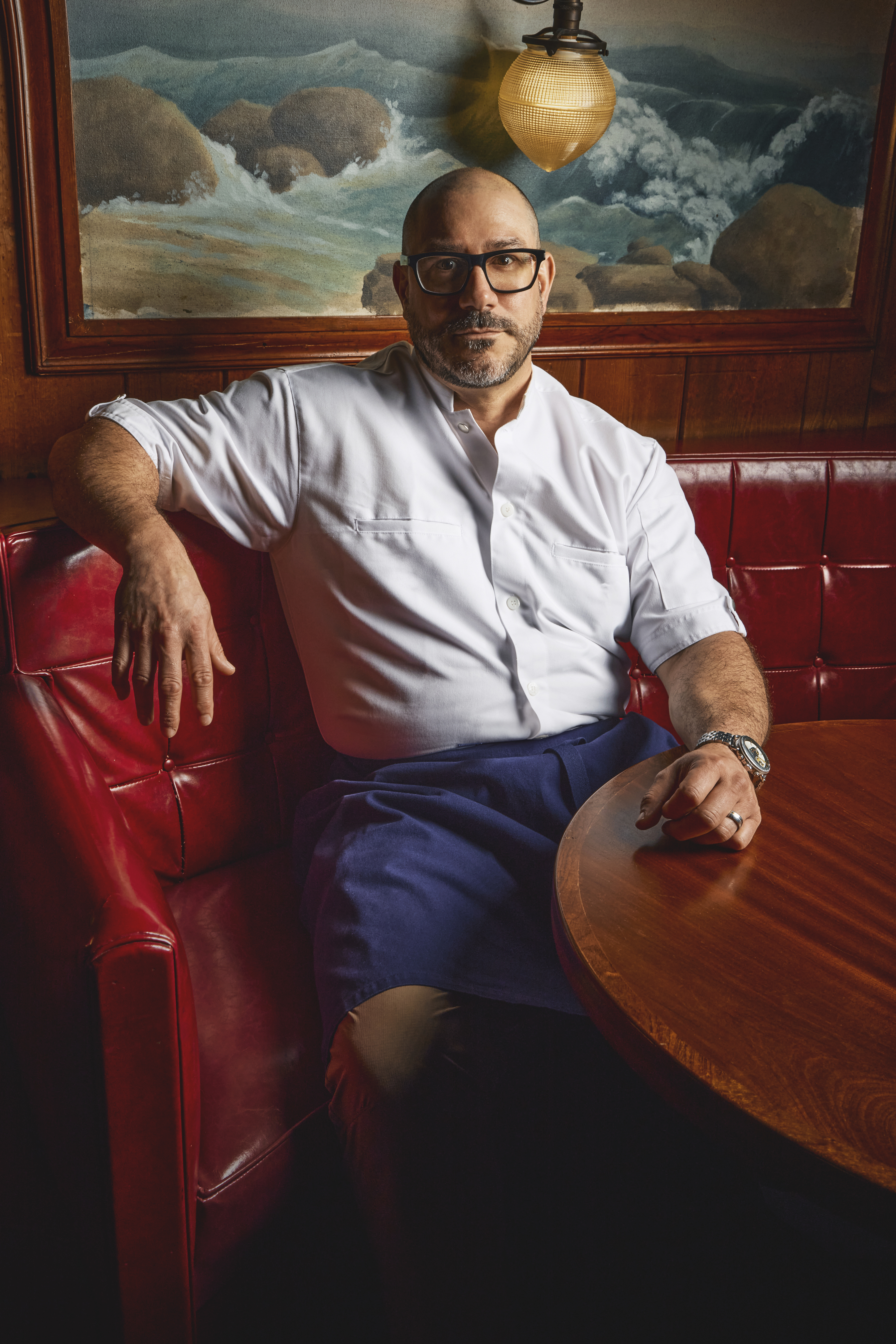
And while the Gallo Duck Farm in East Patchogue closed in 1987 – again due to environmental regulations – its legacy is survived by Chef Francis Derby, grandson of farmer Joe Gallo, who is the culinary director at The Halyard at Sound View Greenport. Derby also owns a restaurant in Patchogue.
“I still get my ducks from Crescent Duck Farm,” Derby said. “Even now, Doug still calls me ‘Gallo’s grandson.’”
Derby was one of the organizers for a March fundraiser that helped save Crescent.
A Culture Lost to Time
For most of the duck farms, there is little to no legacy beyond the common knowledge of industry history.
Some properties, like the former Hubbard Duck Farm in Aquebogue, have been returned to nature; Hubbard is now Suffolk County parkland. Gallo is also parkland.
The Hollis Warner Duck Farm in Riverhead closed by the 1960s. Owner Hollis Warner decided to make his living as a landlord instead – or perhaps, more accurately, a slumlord. It infamously was home to Riverhead’s ‘Tin City’ some 60 years ago, housing African-American and migrant workers in horrible conditions on the former farm. It was one of the biggest rural slums in America. Regular fires at the farm caused by kerosene heaters in the sheds prompted Suffolk County to eventually take over the property.
Not long afterwards, in 1967, Hollis Warner was murdered, found in a shed on the farm’s property with a woman named Rosemary Giles Duff, who was also murdered. The property is now the Indian Island County Park in Riverhead.
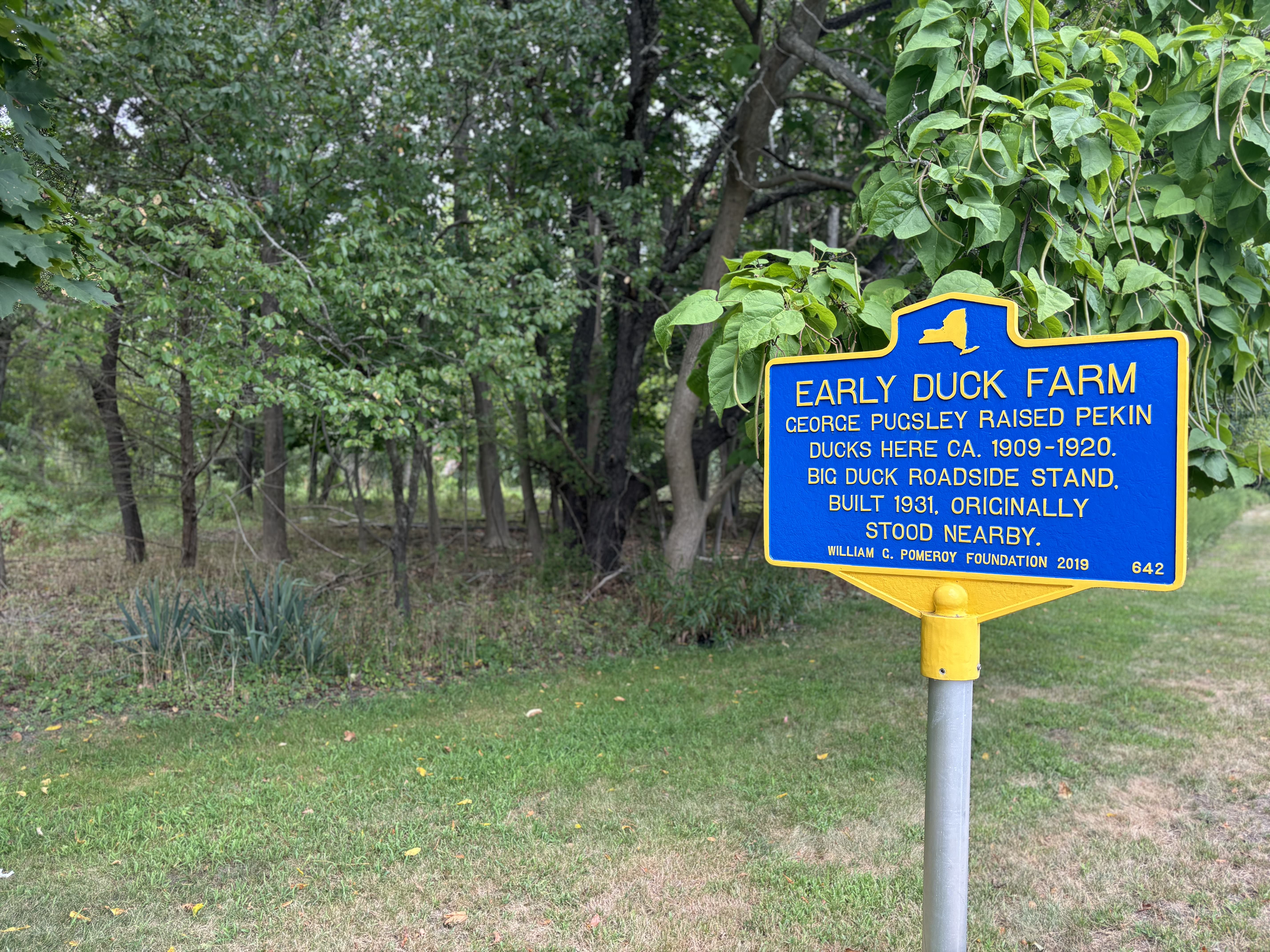
But for many others, there is neither a return to nature nor a dramatic epilogue to the farm’s story; they are simply gone.
Most duck farms have gone without a trace, though the odd historic sign can still be seen here and there – often out of place on the modern East End. In their places are Hamptonite mansions, luxury condominiums, parking lots, congested roads, gas stations – anything from the suburban sprawl that continues to overtake rural Long Island.
This would include places like Kostuk Duck Farm of Eastport, the Seatuck Farm Inc. of Eastport, the New Road Duck Farm of Riverhead, Oceanic Duck Farm in Speonk, the Swift Stream Duck Farm of Eastport, and many others, the names of which could escape even the most seasoned researcher.
Corwin maintains that if he is hit with another bird flu outbreak – at least before the flock is fully recovered – he will likely sell the farm, although he’s not focused on that, and he maintains a positive outlook.
“I think at that point in time, it just makes more realistic sense to turn the place into real estate, which would break my heart, but let’s think positively,” Corwin said. “I’m not going to dwell on the negatives right now. There’s still a lot of preserved land out here. I want to die a duck farmer, and I hope my sons continue it on. I don’t want the last Long Island ducks to be baseball players.”
And despite the loss of the industry, there’s no hard feelings between Corwin and the powers-that-be who put an end to most Long Island duck farms.
“I remember being a little kid and seeing H. Lee Dennison saying he wanted a duck-less county,’ Corwin said. “Well, all I can say is that this industry had a huge environmental problem, and a lot of us worked hard to solve it. Cornell came in and did a lot. A lot of us hired private engineers. But H. Lee Dennison was trying to address a problem and I can’t fault him for it. We were lucky that we stayed ahead of the curve and stayed in good graces with the authorities.”
– With additional reporting by Max Rosen


